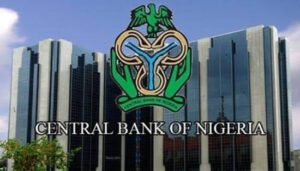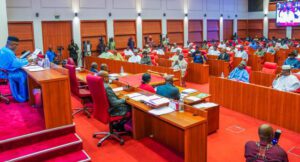
FG prioritises poverty reduction, consumer credit with N350bn allocation
…Industry minister emphasises importance of efficient consumer credit system
By Sodiq Adelakun
The Federal Government has allocated N350 billion for a consumer credit fund and a national poverty reduction strategy in the 2024 budget.
The details of the budget were published in a document titled ‘House of Representatives Federal Republic of Nigeria Order Paper.’ Under the categories of ‘capital supplementation’ and ‘other service-wide votes,’ two line items were mentioned.
The first line item, ‘National Poverty Reduction with Growth Strategy (FGN Commitment, including NSIP Upscaling),’ received a total of N250 billion. The second line item, the Consumer Credit Fund, was allocated N100 billion.
The decision to establish a consumer credit fund comes after the Presidential Council on Industrial Revitalisation announced the formation of a Technical Working Group to develop a framework for enhancing consumer credit in the country.
The committee includes members from the Central Bank of Nigeria, the National Identity Management Commission, and the Federal Competition and Consumer Commission.
The Minister of Industry, Trade, and Investment, Dr. Doris Uzoka-Ani, emphasised the importance of an efficient consumer credit system in successful economies.
She stated that such a system improves market efficiencies and fills gaps in consumption and productivity by providing consumers with immediate access to credit, enabling them to make purchases ahead of their ability to pay.
“The absence of a well-structured consumer credit system has been a significant impediment to financial inclusion and economic prosperity.”
She noted that while the country has numerous financial institutions and credit schemes, many Nigerians still face substantial hurdles in accessing credit due to stringent eligibility criteria, high-interest rates, identity-related challenges, fragmented data sources for proof of livelihood and financial worth, lack of awareness or understanding of credit processes, and inadequate credit available for lending.
According to the Central Bank of Nigeria, there has been substantial growth in consumer credit in the country. In the third quarter of 2023, total consumer credit was N3.05 trillion (it was N2.31trillion as of the end of the fourth quarter of 2024). Personal loans accounted for 74.8 percent and retail loans covered the remaining 25.2 percent.
The National Poverty Reduction with Growth Strategy was approved by the Federal Executive Council in 2021 when Muhammadu Buhari was president to address poverty, particularly in rural areas.
In a document dated March 2021, the Presidential Economic Advisory Council noted that over 80 million Nigerians were poor with more than 50 percent of them being multi-dimensionally poor (as of November 2022, the National Bureau of Statistics disclosed that 133 million Nigerians were multi-dimensionally poor).
The council highlighted how over the 10-year programme period (2021-2031) of the programme, a total cost of $1.6 trillion ($161 billion annually) would be spent on lifting 100 million Nigerians.
Before leaving office, the Buhari administration claimed that a total of 1.8 million vulnerable Nigerians benefited from the programme.
Recently, the Minister of Humanitarian Affairs and Poverty Alleviation, Betta Edu, stated that the eradication of poverty in the country would reduce insecurity in the country by over 50 per cent.
According to President Bola Tinubu, he is “committed to supporting a strong and ideologically determined democracy that is progressive, inclusive, and focused on eliminating poverty while providing quality education for our children.”
However, the World Bank recently announced that the number of Nigerians living below the international poverty line will hit 38.8 percent in 2024. It noted that this would be due to slow growth and rising inflation in the country.
Commenting on how the government can address poverty in the short term, the bank noted, “Targeted measures, including cash transfers, could mitigate short-term adjustment costs to the poor and vulnerable and mitigate their risk of falling into intergenerational poverty traps.”



